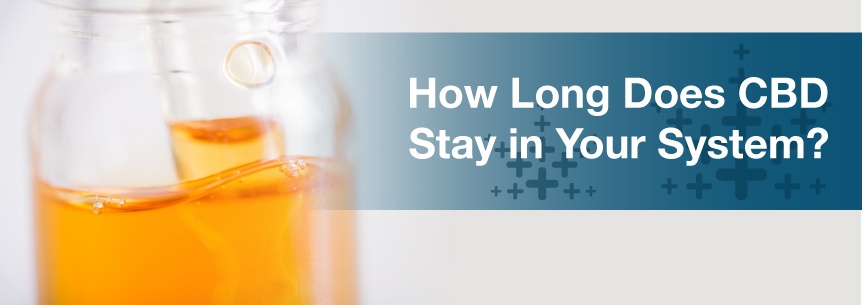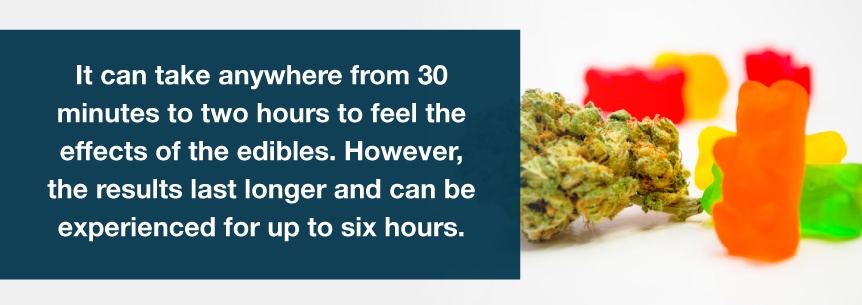
Today more than ever, cannabidiol (CBD) is becoming a trendy medical marijuana treatment. However, what some people might not know is that CBD is only one of the many compounds found in cannabis. These components, called cannabinoids, are what give marijuana its therapeutic and recreational effects. More than 100 different cannabinoids that have been discovered, but the two most prevalent compounds within the plant are cannabidiol (CBD) and tetrahydrocannabinol (THC).
The reason many patients are seeking out CBD treatments is that, unlike THC, no psychoactive side effects are associated with its use. In fact, the effects of THC are balanced out when there is an equal ratio of THC and CBD found in a particular cannabis strain. CBD can even be derived from the hemp plant, allowing those without medical marijuana cards to purchase these infused products online, in health food stores and even in pet stores as a nutritional and medicinal supplement.
But you may be wondering how long CBD stays in your system. Maybe you’re curious about how long it takes for the effects of CBD medications and products to wear off. Or perhaps you will be getting a drug test, and you’re worried they’ll find a marijuana cannabinoid in your system. Although most drug tests are only concerned with the presence of THC, it’s still important to know how long CBD can be detected.
CBD is earning a positive reputation as a therapeutic remedy that can naturally treat many different conditions and symptoms. When you ingest CBD, it works with your body’s endocannabinoid system, which is an extensive network of receptors that play a role in many different bodily functions. Marijuana’s cannabinoids, including CBD, bind to these receptors producing the plant’s positive benefits. For that reason, CBD can treat issues related to digestion, pain management, mood, immunity and much more.
You can consume CBD in several different ways, such as through inhalation, oils under the tongue, ingesting edible products and topical applications. Each method takes a different amount of time to kick in, and the length of time the effects last varies depending on which you choose:

Although CBD is completely non-psychoactive, which means it doesn’t get users high, many are concerned about the presence of this cannabinoid in their system. After all, if you have to take a drug test, won’t you get in trouble if CBD is detected? The good news is that the majority of drug tests you will encounter that are designed to identify marijuana in your system do not look for CBD. Whether you’re an employee or an athlete undergoing a screening, most testers are looking for the presence of THC.
Because THC is the intoxicating compound, many researchers focus on how this cannabinoid metabolizes in your system. However, there hasn’t been a lot of attention given to the metabolism of CBD. Because of its more recent popularity, however, recent studies are now emerging to clue us in on how long CBD can be detected in your system.
Many factors can influence the length of time CBD is detected. But we do have some general guidelines for how long the compound can be detected based on how often you use CBD medications:
Because CBD is a fat soluble molecule, it can potentially build up in your system with heavy, repeated use. That’s because it can remain in fat cells for quite some time. In addition to this fact, every CBD user is different which means that your body may process CBD faster or slower than usual. Some of the factors that influence this include:
Although CBD can be derived from hemp, many users find that the effects of hemp CBD are less beneficial than when it’s sourced from the marijuana plant. However, this form of CBD is reserved for patients who have registered with their state’s medical marijuana program.
If you have a debilitating condition you feel would benefit from CBD medications, then the first step is meeting with a marijuana doctor in your state. Use our physician database to find a qualified health care professional near you who can provide you with a medical marijuana recommendation.
No Information on MarijuanaDoctors.Com should be used to diagnose, treat, prevent or cure any disease or condition. You can view our Full Disclaimer here.